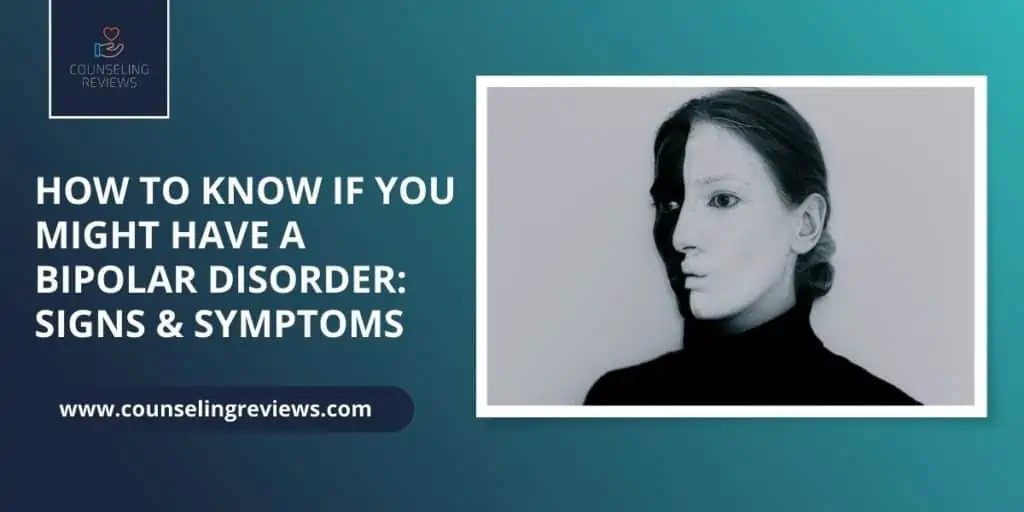Sometimes, bipolar disorders and relationships can coexist. Bipolar disorder relationships can sometimes be challenging, but not impossible. It could actually turn into the companionship you’ve always looked for.
Bipolar disorder is a mental health condition that causes intense mood swings. It is an exhausting and traumatic condition, but it is manageable. Here are some tips for managing relationships in times of pandemics, also see.
The emotional rollercoaster of not knowing what might happen next can be overbearing. It’s a vicious circle of going back and forth from episodes of mania to hypomania and then to depression.
Understanding what a person is going through will help to create a stronger bond.
Learning the ways a bipolar disorder affects relationships can work put for the best for the people involved. Do some research and see how bipolar disorder may affect a relationship.
Types of Bipolar Episodes
The cause of this condition is yet to be discovered, however, the good news is that with the right treatment, it can be put under control.
There are three types of episodes a bipolar person can be expected to manifest:
- Manic or extreme episodes: When experiencing a manic episode, a person may become paranoid and irritable, or pick a fight. It’s possible for them to experience hallucinations and turn to risky behavior. Persons with extreme forms of manic episodes may need hospitalization, which is usually done for their safety because the episodes may become quite intense.
- Depressive or lighter episodes: During these episodes, a person experiences lows. These hypomanic episodes make the person very emotional and pessimistic. Lighter hypomanic episodes are accompanied by fast speech, reduced sleep, and increased energy.
- Mixed episodes: During these episodes, a person might feel confused due to experiencing depression, mania, and hypomania all at the same time.
The Struggles of a Person with Bipolar Disorder
A person with bipolar disorder faces many struggles and dilemmas when it comes to relationships. Many feel insecure about the way their partner would accept them and deal with their condition. They often avoid relationships and isolate themselves because they don’t feel worthy.
A few of the reasons why persons with bipolar disorder avoid relationships include:
- Uncontrollable mood swings: People suffering from bipolar disorders may bring disagreements in a relationship. A partner may not be understanding of these frequent mood changes.
- Following a strict routine: A bipolar person must follow a routine in order to keep the condition under control. Long sleeping hours, scheduled exercise and meals are just a few of the things that may affect the relationship.
- Intimacy: If experiencing a turbulent episode, a bipolar person may have a hightened sex drive. Engaging in unsafe sex with multiple partners is a possibility. During a depressive episode, a bipolar person may have no desire for sex. Understanding that the condition is causing these changes is crucial.
Handling a Bipolar Disorder Relationship
Being in a relationship is hard enough as it is, for it requires a lot of work and understanding. Trying to maintain a bipolar disorder relationship might be even more challenging and require that much work.
Building trust and a good communication system are essential. Try to understand what the person is going through and help them in any way possible.
1. Research the Condition
Once the episodes start, stressful situations are to be expected and need to be controlled. Do some research on bipolar disorder, try to learn as much as possible to make the bipolar person feel more comfortable during episodes.
Be very aware that their condition can affect the relationship. It is good to know what might trigger an episode and how to prevent it from happening. Not every bipolar person goes through the same experience.
3. Build a Support System
Discuss creating a good support system; it will be perceived as a sign of interest in the relationship and might put the bipolar person at ease. Some like to have their loved ones support them, while others may find this as an intrusion.
Episodes come about unannounced, so be prepared with an established support plan. This will be of help in case there is a need for a swift reaction. Always have the contact number of a trusted therapist or relative for emergencies.
3. Self-care and Communication
Communication is crucial in a bipolar disorder relationship. Partners should have an open discussion about the condition and how it affects both of them. An honest approach is the best way to overcome obstacles that appear when episodes occur.
A partner may support a person with bipolar disorder by primarily taking care of their own mental health. The best way to do this is through having a hobby, exercising, talking to a friend or therapist.
It’s important to practice techniques for stress relief and emotional tranquility.
Treatment
Treatment is not always suitable for every person with bipolar disorder. The best treatment should be determined based on the person’s needs. It might be a mix of medications and exercise.
Practicing yoga is very useful for bipolar disorder as it calms the mind and it might help with controlling the episodes.
Relationships with bipolar persons can be successful and happy. Establish the right support and communication systems and enjoy a relationship filled with love and understanding.





